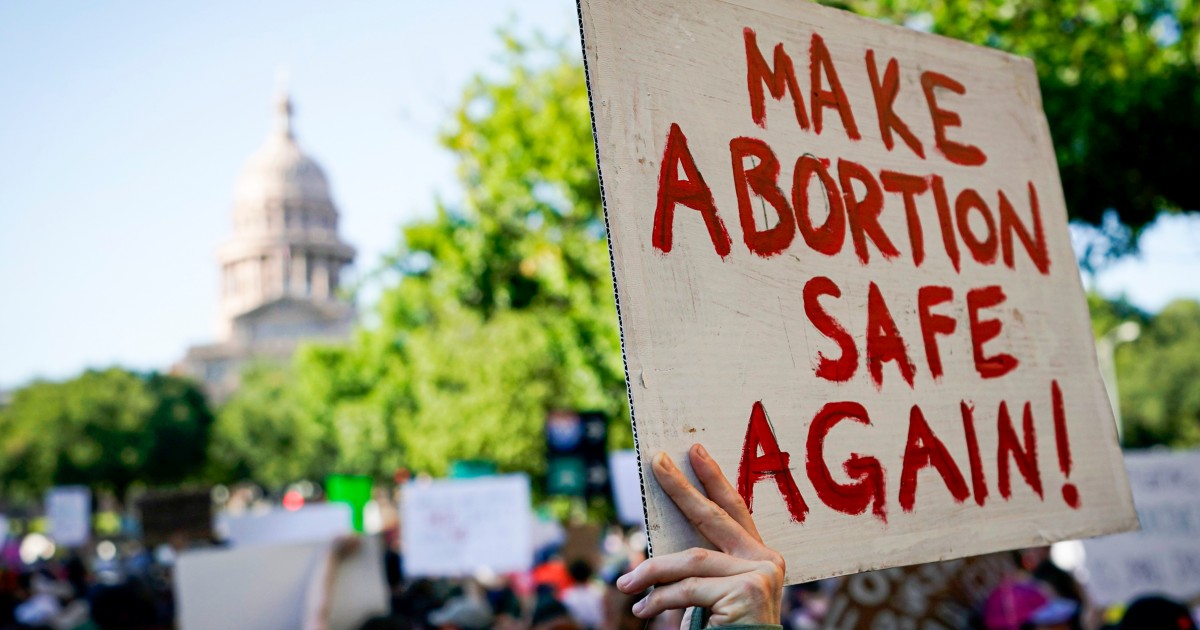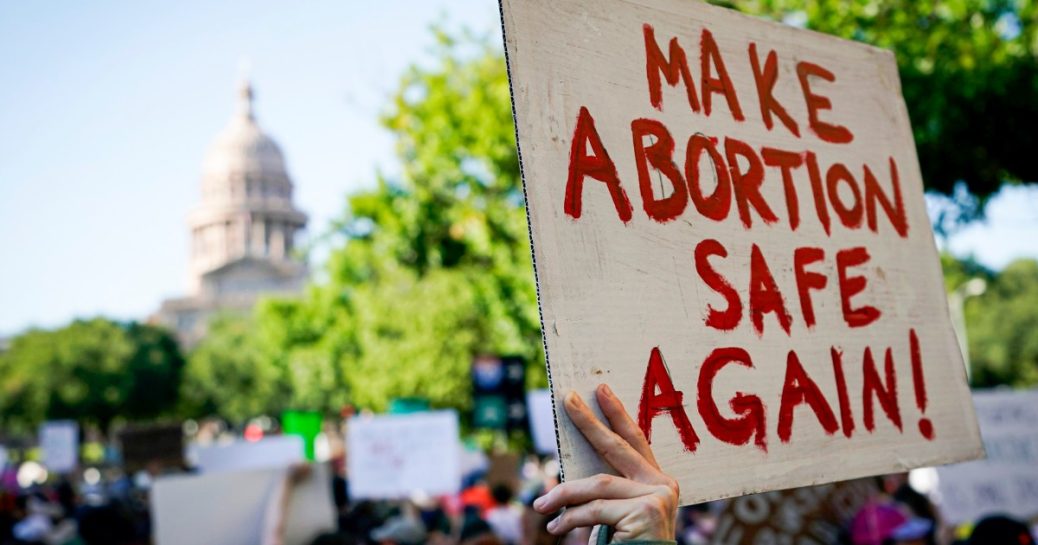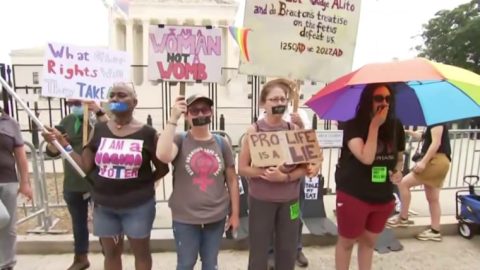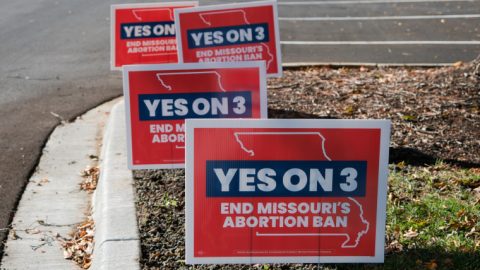
The Texas Supreme Court on Friday rejected a challenge to the state’s strict abortion ban — a response to a lawsuit filed last year by a group of women who had serious pregnancy complications.
The ruling from the nine justices, who are all Republicans, was unanimous.
Five women brought the lawsuit in March 2023, saying they were denied abortions even when issues arose during their pregnancies that endangered their lives. The case grew to include 20 women and two doctors.
The plaintiffs had not sought to repeal the ban, but rather to force clarification and transparency as to the precise circumstances in which exceptions are allowed. They also wanted doctors to be allowed more discretion to intervene when medical complications arise in pregnancy.
The lead plaintiff, Amanda Zurawski, said she was outraged by Friday’s ruling on behalf of all the plaintiffs who, she said, “the Court deemed not sick enough.”
“Every day, people in Texas are being told that they have no options,” Zurawski said in a statement. “It’s sickening and wrong. Our Courts should acknowledge all of our suffering and vindicate our fundamental rights to reproductive autonomy. We should not need to beg elected officials for our right to control our own bodies.”
Another plaintiff, Samantha Casiano, whose fetus was diagnosed with anencephaly, also expressed anger and disappointment.
“I was told my baby would not survive, but I was forced to continue my pregnancy and give birth anyway, then watch her pass away hours later,” she said in a statement. “I don’t know how the court could hear what I went through and choose to do nothing. Texas lawmakers claim to care about protecting ‘the unborn’, but in reality they made my family suffer … I am embarrassed to be a Texan because of these inhumane laws.”
Last summer, a district court judge who heard the case issued a temporary injunction, preventing Texas from enforcing the ban against doctors who terminated a pregnancy that they deemed unsafe because of complications.
“The Court finds that there is uncertainty regarding whether the medical exception to Texas’ abortion bans … permits a physician to provide abortion care where, in the physician’s good faith judgment and in consultation with the pregnant person, a pregnant person has a physical emergent medical condition,” the ruling said.
However, the Texas Supreme Court disagreed in its Friday decision.
Zurawski v. Texas was the first legal challenge to the state’s bans that focused specifically on women with complicated pregnancies.
Zurawski has said she nearly died in August 2022, after doctors delayed giving her a medically necessary abortion when she had catastrophic complications while 18 weeks pregnant. After her health deteriorated, her doctors eventually performed an abortion. She said she later went into sepsis and spent three days in the intensive care unit.
Zurawski’s doctors later advised her to not to try to carry a baby again, she said. So she and her husband turned to in vitro fertilization and sought to have a baby through a surrogate.
At a hearing last summer, Casiano recounted the details of her experience. At 20 weeks pregnant, she said, she learned that her baby had anencephaly, a serious condition that meant the infant was missing parts of the brain and skull. The issue also put her life at risk, Casiano said. She sobbed and vomited on the stand as she described her baby’s fatal birth defect, prompting the judge to declare a recess. She said she had experienced emotional trauma during her pregnancy.
The Texas Supreme Court’s Friday ruling is in line with a decision it issued in December, directing a lower court to vacate an order that had blocked the state’s abortion ban from applying in the case of Kate Cox.
Cox sued the state after her developing fetus was diagnosed with trisomy 18, a rare chromosomal disorder that significantly increases the risk of stillbirth or infant death shortly after birth. She sought a court order to allow her to terminate the pregnancy.
Cox’s lawyers said her doctor had determined that carrying the pregnancy put her health and future ability to have children at risk. Shortly before the Texas Supreme Court ruled against her, Cox left the state to get an abortion. Her case was believed to be the first in which a person sought a court-ordered exception to an abortion ban following the Supreme Court’s decision to overturn Roe v. Wade in 2022.
Texas law prohibits all abortions except to save the life of the pregnant patient. Doctors who violate it can lose their medical licenses, face up to 99 years in prison or incur fines of at least $100,000. Critics of the ban, which is among the most restrictive in the U.S., have said it does not provide enough clarity about which exceptions are allowed.










Recent Comments